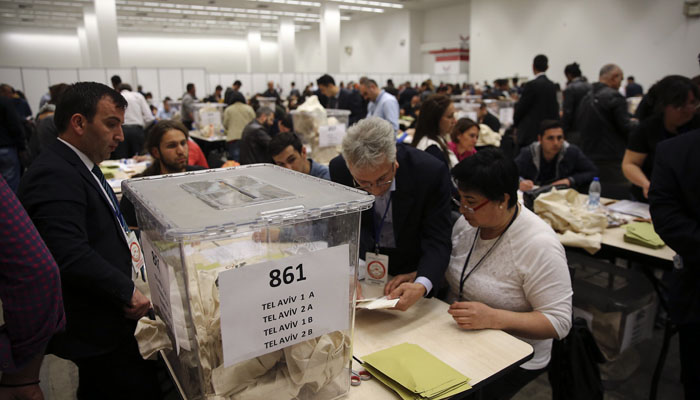The Organization for Security and Co-operation in Europe (OSCE) said on Monday that Turkey’s referendum on Sunday lacked equal opportunities, media coverage for the contesting sides and international standards for a fair election.
In a statement on Monday, the joint mission of the OSCE’s Office for Democratic Institutions and Human Rights (ODIHR) and the Parliamentary Assembly of the Council of Europe (PACE) said the April 16 constitutional referendum in Turkey was contested on an unlevel playing field and that the two sides in the campaign did not have equal opportunities.
“In general, the referendum did not live up to Council of Europe standards. The legal framework was inadequate for the holding of a genuinely democratic process. On referendum day there were no major problems, except in some regions, however we can only regret the absence of civil society observers in polling stations,” Cezar Florin Preda, head of the delegation from PACE, said.
“A state of emergency should never be used to undermine the rule of law,” Preda added.
The OSCE said, in some cases, access for ODIHR observers during the opening and voting in polling stations was either denied or limited.
Turkey’s Supreme Election Board (YSK) issued instructions late in the day that significantly changed the ballot validity criteria, undermining an important safeguard and contradicting the law, said the statement.
According to Tana de Zulueta, head of the ODIHR, the referendum took place in a political environment in which fundamental freedoms essential to a genuinely democratic process were curtailed under the state of emergency, and the two sides did not have equal opportunities to make their case to the voters.
“Our monitoring showed the ‘Yes’ campaign dominated the media coverage and this, along with restrictions on the media, the arrests of journalists and the closure of media outlets, reduced voters’ access to a plurality of views,” Zulueta said.
According to the OSCE statement, the legal framework for the referendum in Turkey neither sufficiently provides for impartial coverage nor guarantees eligible political parties equal access to public media, and gives preference to the ruling party and the president in the allocation of free airtime.
“We observed the misuse of state resources, as well as the obstruction of ‘No’ campaign events. The campaign rhetoric was tarnished by some senior officials equating ‘No’ supporters with terrorist sympathizers, and in numerous cases ‘No’ supporters faced police interventions and violent scuffles at their events,” Zulueta said.

